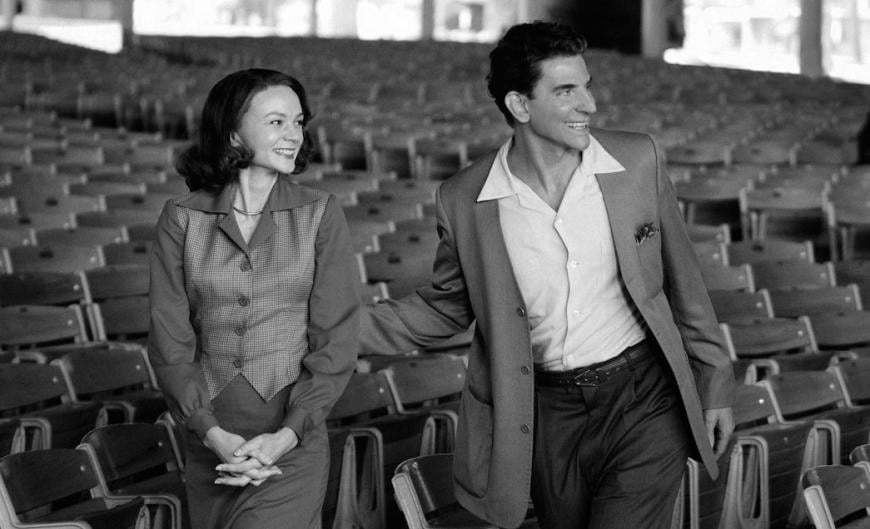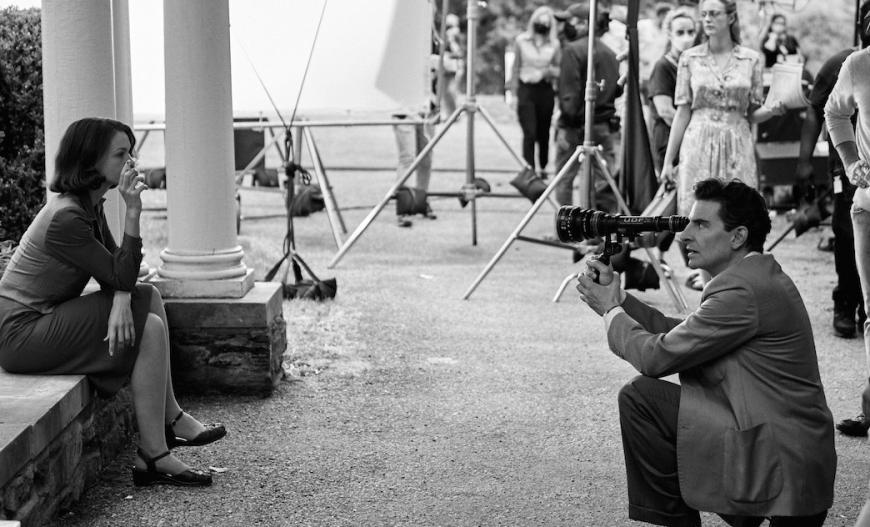
After the fame and controversy that surrounded Tár, fans and fanatics of classical music have engaged in passionate debate about a film not yet released.
On Facebook’s “Gustav Mahler Group” alone, there are some 540 responses to the mere mention of Maestro, Bradley Cooper’s upcoming Netflix film about Leonard Bernstein.
Cooper, who both directs the film and plays Bernstein, is shown conducting a Mahler symphony, hence the mention on social media.
Among the responses: “Despicable!” (not further explained), “Is this an April joke?!” and “Courageous! Bravo to Mr. Cooper for taking the risk of actually trying to understand what it’s like to be a conductor, and not just pretending.”
The debate — premature as the Netflix film doesn’t even have a release date, though is expected in the fall — is between those who are afraid of “cheapening” classical music and those who welcome the possibility of increasing audiences and sharing their passion with more listeners.

Maestro certainly has extraordinary parentage. Steven Spielberg was planning to direct it, but Cooper — with the success of directing the 2018 A Star Is Born behind him — convinced Spielberg to be a producer instead and to let him direct it and portray Bernstein as well. Cooper is also co-writer (with Josh Singer) and producer. Other producers include Martin Scorsese and Todd Phillips.
The challenge of telling Bernstein’s story and portraying him is enormous, considering that the subject is a world-renowned conductor, composer, pianist, music educator, author, and humanitarian, honored with 16 Grammy Awards, seven Emmy Awards, two Tony Awards, and a Kennedy Center Honor.
“The drama,” says Netflix’s synopsis, “tells the complex love story of Leonard Bernstein and Felicia Montealegre Cohn Bernstein, a story that spans over 30 years — from the time they met in 1946 at a party and continuing through two engagements, a 25-year marriage, and three children.”
Cooper himself described the film in similar terms on an episode of the podcast SmartLess, adding that Maestro is not meant to be a “traditional musical biopic,” such as Elvis or Bohemian Rhapsody, but rather “a movie about marriage.”

Carey Mulligan plays Bernstein’s wife. Maya Hawke appears in the role of the couple’s firstborn, Jamie Bernstein, who had a close, supportive relationship with her father in his latter years. Succession star Jeremy Strong will be playing music critic and Bernstein biographer John Gruen.
Indicating the film’s willingness to deal with Bernstein’s gay affairs, Matt Bomer (of Magic Mike) will appear in a major role, a clarinet player with whom Bernstein had a brief dalliance.
An important musical scene in the film is of Bernstein leading the London Symphony Orchestra in a much-acclaimed 1973 Columbia recording of Mahler’s Symphony No. 2, “Resurrection.” Mention of this scene, in which Cooper is actually conducting the orchestra, caused the controversy on Facebook (and elsewhere).
Filming itself had no problems, even if three weeks in Ely — the film crew overtaking the small town near Cambridge with a population of 20,000 — obviously created some hindrance.
The location manager for the film crew said Ely was “amazing as a place to film. ... They paid real attention to detail, replacing signs to make them look old and even turning dog poop bins into topiary trees. ... People really embraced the film.”
On U.S. social media, there was no such general welcome, with some critical responses to the mere mention of the coming of Maestro, Cooper’s conducting, or even the very idea of Bernstein portrayed in a film. There were several messages such as this from the curator emeritus of a major American art museum: “Bradley Cooper as LB? Gimme a break.”
But there are examples as well of the many who welcome a project that music-popularizer Bernstein himself might have launched. After all, the conductor used mass media such as radio and television especially to introduce classical music to millions.
From the Mahler social media group: “A lot of people, among them surely many who haven’t thought of themselves as lovers of classical music, will be caught up and moved. A good number of them would be, I’d guess, young people currently forming the tastes that will inform their future consumption.”
And another: “For the love of all that’s holy. Hollywood, in just two years, presents Mahler’s music TWICE on the big screen [including Tár] ... to be seen by millions around the world. When was the last time this happened to Mahler’s music? So what if the story lines don’t make everyone thrilled? Go ahead and be a grouch, stewing in the corner over some personal bee in your bonnet.
“The rest of us will thank the studios, see the movies, and be grateful for all the other people in the theaters who heard Mahler’s Second and Fifth Symphonies, whose lives will be changed by having heard those two works and who might very well pursue classical music because of what they experienced in the theater.”



